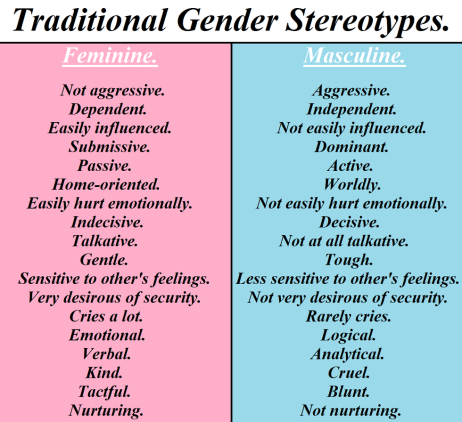 Harini Narayan is a student intern at the Women’s Center.
Harini Narayan is a student intern at the Women’s Center.
My childhood was marked by internal conflict. I struggled to understand my ethnic identity and sexual orientation, all the while facing the usual struggles of adolescence. In intermediate school, I was a self-declared tomboy and made friends mostly with the boys in my class. I identified with them more than the girls, and the validation I received in being “one of the boys” only fueled my need to further distance myself from my own gender. I was proud to say I didn’t wear makeup or wear dresses and loved to brag that I was never so shallow as to have a boyfriend (little did I know there was a very different reason for not wanting to date boys, but that’s a realization I wouldn’t come to for a few years). Thankfully, I grew out of that phase before I became an adult.
In retrospect, I recognize the toxicity of my behavior. I put down other girls to feel better about myself, as if wearing pants instead of a dress somehow made me superior. It’s almost laughable how much I’ve changed, but my childhood personality opens the bigger issue of those who do not change, and enter adulthood as a woman that sets herself apart from the rest of her gender on the sole belief that she is somehow better for not conforming to the societal mold for femininity.
Of course, there is nothing wrong with not being feminine. Toxicity lies in not being able to accept a woman’s personal choice may align with societal norms. For example, I still prefer pants to dresses, but I know there is nothing wrong with dresses. Femininity is not a weakness, but a choice that should be respected. Declaring oneself as “not like other girls” shouldn’t be acceptable, unless the one in question is a) not wholly female-identifying (like genderfluid people), or b) a mermaid, werewolf, or other partially supernatural entity that identifies as female, but not human. Even those two instances, what makes someone “different” from other girls is either not completely identifying as female (hence unlike other girls, because they are not always a girl), or not being fully human-identifying (in this case, the “other” girls are human, and therefore biologically unlike a hybrid species).

Furthermore, toxic gender culture isn’t limited to women; men face the same issue though it’s presented differently. Toxic masculinity takes the form of repressed emotions. It’s hearing “men can’t get raped,” and shaming those who aren’t interested in sex, sports, or beer. It’s assuming a man is gay because he dresses a certain way, or watches certain television shows. It’s microaggressions that people don’t realize they’ve normalized until it’s almost too late.
Toxicity stems from society, but manifests itself within a gender identity group over time.
Internalized misogyny can be blamed on several things, notably the stereotypes surrounding the different ways in which girls present themselves. When a girl grows up hearing she can either be pretty or smart, she is trapped in a binary that restricts her personality. If you want to be smart, no one will find you attractive; but if you want to wear makeup and date, no one will perceive you as intelligent. She can be a Madonna/whore, a domestic goddess, or a bossy spinster—“or” being the operative word. Only one option is acceptable, but still leaves the woman with enough flaws to be criticized by society. The bimbo is an airhead, an object for men’s entertainment; the domestic goddess is submissive and lacks any sort of worldly knowledge; the bossy spinster is a prude that doesn’t know how to have a good time.
What isn’t considered here is how there is no one-size-fits-all for what a “good woman” is. Society wants a woman that is smart, but always yields to men to ensure she never appears more intelligent than them; she must be attractive but can’t flaunt her sexuality or dislike the notion of sex either; and she must be well-versed in domesticity, able to cook, clean, and tend to the family. Unfortunately for those with such counter-intuitive/competing? expectations, this kind of woman does not exist.
Women are powerful, and they are also multifaceted: a single characteristic does not define them. Women know this about themselves, so why do some hold fellow women to a different standard?
This is the power of misogyny in a patriarchal society. Social constructs form barriers on the personalities of women, which is oppressive to its core. To be taken seriously (read: worthy of a man’s approval), women must confine themselves to the task of boosting men’s self-esteem. If you’re a woman reading this, I want you to think about your own experiences in public with men: how many times have you been interrupted by a man in conversation? How many times have you laughed at a joke you found unfunny, or even offensive? How many times have you been cat called on the street? And how many times have you seen men cat called? The first step to breaking free of that is being conscious of any sort of thinking or behavior that demonizes other women for doing something completely unproblematic. Is her makeup messy? That’s okay, because maybe she’s practicing improving her skills or maybe she doesn’t care how others perceive her. Is her outfit totally unflattering to that body shape? That’s none of your business because the clothes aren’t on your body! Being constructive isn’t the same as being judgmental: telling someone she has lipstick on her teeth isn’t the same as pointing out her makeup is cakey. Women need to respect each other and help each other succeed. In a society designed to put women down, we must rely on each other to lift ourselves back up and stand strong.

A chart dictating some examples of gender stereotypes
It’s hard work to filter our thoughts for all of the toxic things we internalize, but we need to recognize that acknowledgement of sexist thoughts is important. Respect is learned, and people can change for the better if they first admit they need to do so. Years ago, I represented everything that is wrong with the ways society views gender toxicity. Now, I can say that I have educated myself and recognize when I’m engaging in toxic behavior. Nobody is perfect or all-knowing, but it is the effort and willingness to be a better person that makes the world a better place.